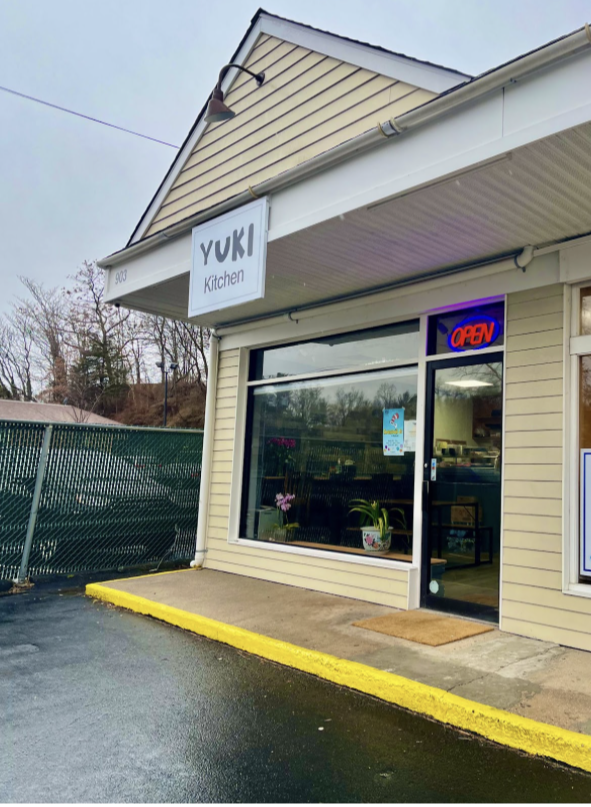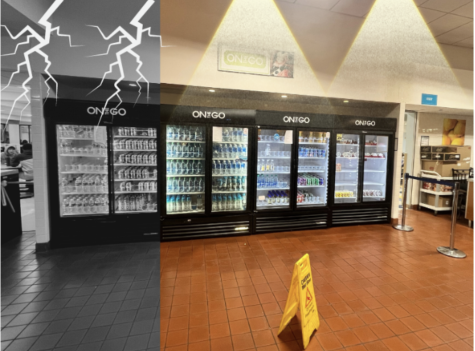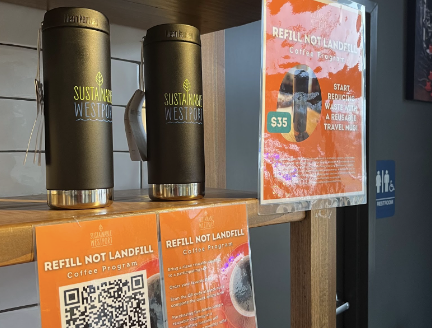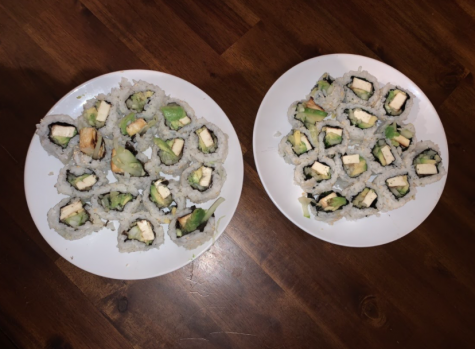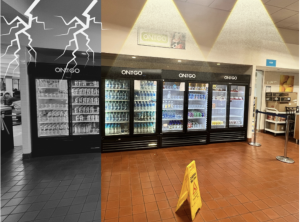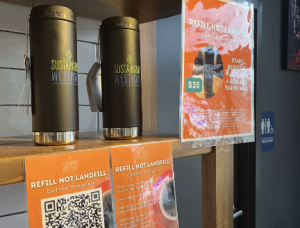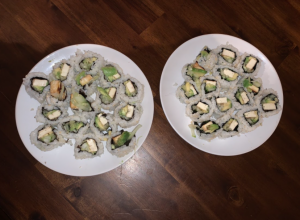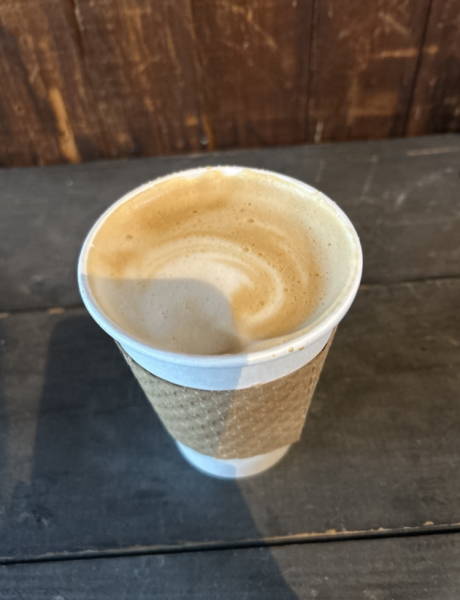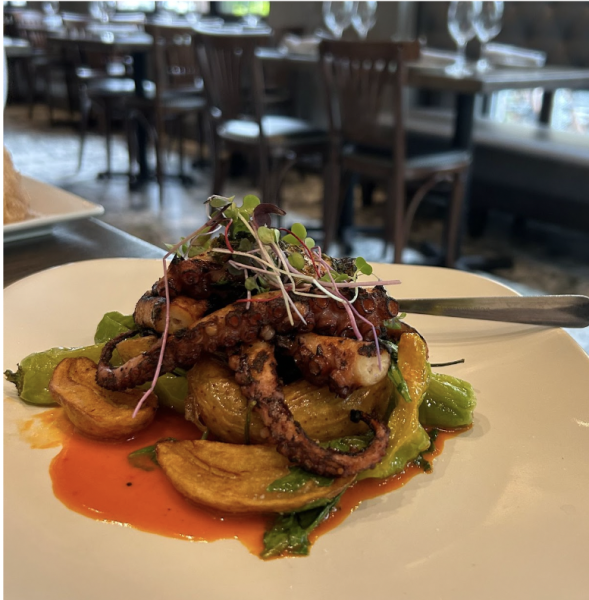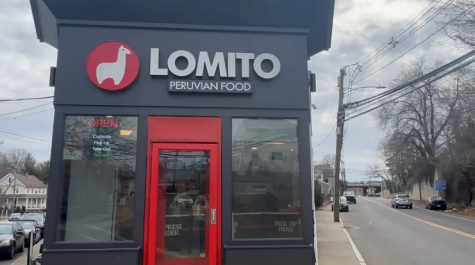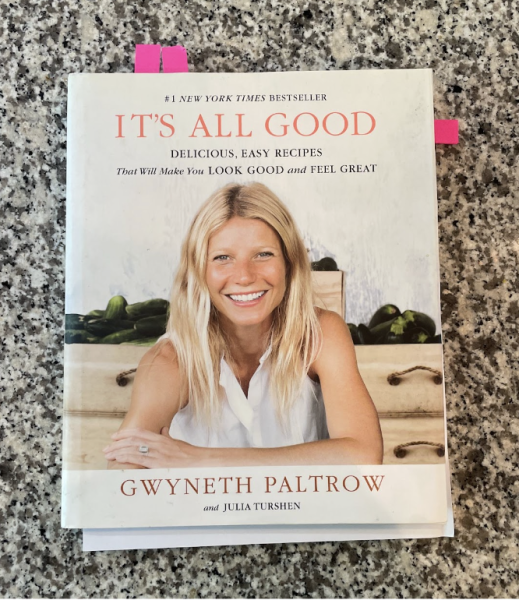Yuki Kitchen cooks up homemade Korean, Japanese and Chinese cuisine
New restaurant Yuki Kitchen opened at 903 Post Road East in Westport in Nov., 2022. They serve Korean, Japanese and Chinese food.
Off the side of the Post Road, a new restaurant, Yuki Kitchen, finds its home in Westport. They’re housed in a cozy space that seats nine, with a refrigerator filled with American and Japanese sodas and a large waving cat. Despite only opening in late 2022, they already have regular customers eating their combination of Korean, Chinese and Japanese cuisine. On the storefront’s windows is a sign they’ve truly integrated into the Westport community: posters advertising the latest Staples Players’ or middle school show.
The owners, Mama Yuki and Papa Park, immigrated to the United States in their 30’s after growing up as ethnic Koreans in China, as well as studying abroad in Japan in their 20’s. They worked their way from dishwashing and prepping kitchens, to sushi kiosks, to opening their restaurant that serves up their multicultural background and heritage.
In terms of sushi, Park specializes in maki (rolls) with thin-layered rice, which he cuts into 15 pieces for your typical rolls such as salmon or California roll and 10 pieces for special rolls such as volcano or rainbow roll (most sushi spots cut rolls into only 6-8 pieces per order). Park brought his sushi to Stiles Market, where he still operates a sushi deli, before opening his restaurant close to his Fairfield home.
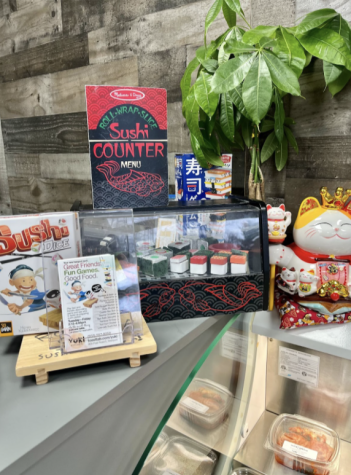
On my first visit, I ordered a tuna cucumber roll. I watched as Park deftly created and cut my sushi, flashing a friendly smile as he handed over my food to the cashier. Overall, my sushi took barely 10 minutes to make, probably my fastest take-out experience in Westport while still preserving quality. The fish was fresh, and, as a fast eater, I enjoyed how I could savor my meal longer with more pieces.
Alongside my sushi, I grabbed seaweed salad from the refrigerator filled with colorful sides next to the cash register. I was pleased to see the salad held my ideal seaweed-to-dressing ratio, without oil pooling at the bottom of the container. As a bonus, every seaweed salad I spotted was larger-than-average, and, as I happily discovered, without volume bulking with lettuce.
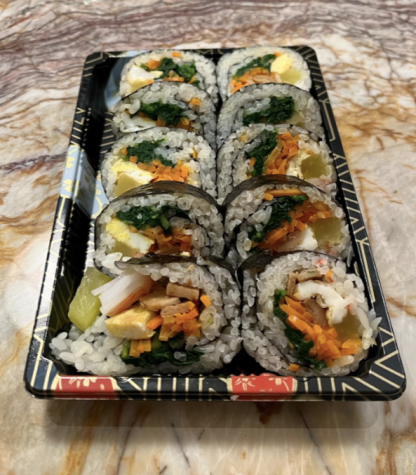
On repeat returns, I sampled their rainbow kimbap and seaweed birthday soup, both Korean dishes. Kimbap is a seaweed and rice roll, similar to sushi, except with cooked fillings and rice seasoned with sesame oil (instead of rice vinegar as in sushi). Yuki Kitchen’s kimbap was stuffed with crab sticks, egg and vegetables. When I questioned the soup’s unique name, the cashier, Kim, kindly explained how the soup was traditionally eaten on birthdays, but now customers can eat it year-round.
The restaurant hopes to create a community space in their small kitchen where people can enjoy good food together.
— Lilly Weisz ’23
The kimbap was delicious, and a must-try for anyone who wants to branch out from eating sushi. The flavor profile is earthier than the tang of sushi rice, while still retaining the light feel. Though kimbap is typically served at room temperature, with its cooked fillings warming the roll slightly, I refrigerated my meal and still enjoyed it chilled the next day. The soup would serve well as a starter or side to a meal, with a simple broth that hinted at the scallions and chicken inside.
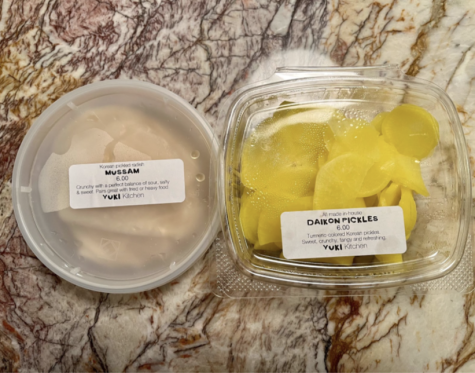
However, my personal favorite dish to try at Yuki Kitchen are the banchan, or Korean vegetable sides which Mama Yuki handmakes in-house daily.
In total, I tried seven banchan: cabbage kimchi, turmeric-colored daikon pickles, pickled radishes, soy-pickled jalapeño, spinach salad, bean sprout salad and soy-braised soy beans. To give an indication of my enjoyment, I once stopped by the restaurant for the sole purpose of purchasing four banchan. My favorites were the bean sprout salad (for its crunch and volume paired with a light dressing with sesame oil) and the soy-braised soy beans (a delightful flavor combination of soy sauce and edamame). While I personally preferred other banchan over the cabbage kimchi, I overall give Yuki Kitchen a stamp of approval as a vegetable lover.
The restaurant hopes to create a community space in their small kitchen where people can enjoy good food together. There are many more dishes I have not been able to roll by and taste yet, and I look forward to returning to Yuki Kitchen and their community to do so. Yuki Kitchen earns itself five stars.
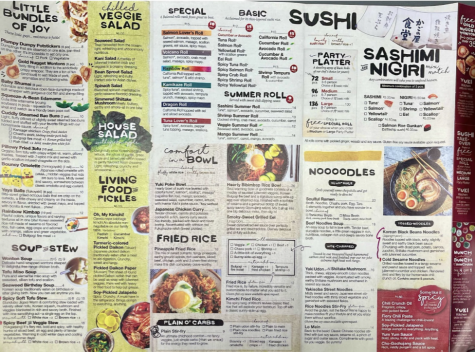

Creative Director Lilly Weisz ’23 has no hesitation when it comes to helping out with anything Inklings related. When Weisz originally joined Inklings,...












































